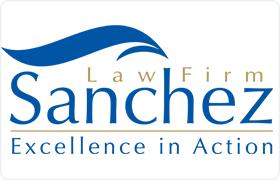San Antonio Eminent Domain Lawyer, Texas
Sponsored Law Firm
-
 x
x

Click For More Info:
-
Sanchez Law Firm
150 W. Parker Rd. 3rd Floor Houston, TX 77076» view mapReal Estate Excellence In Action
We advocate for our clients in and out of court. When you and the system meet head on, you need an attorney who is experienced, credible, and active.
800-785-3351
Not enough matches for San Antonio Eminent Domain lawyer.
Below are all San Antonio Real Estate lawyers.
Andrew Garcia Ramon
✓ VERIFIEDInjured in Texas? Need to get out of a bad marriage here in the Lone Star State? We pride ourselves in delivering big firm results while maintainin... (more)
Robert Joseph
✓ VERIFIEDRobert I. Joseph, P.C., believes in personal advocacy through every step of your case. Unlike other Texas law firms that may pass you off to an associ... (more)
Sylvan S. Lang
✓ VERIFIEDSylvan was born in San Antonio, Texas, and has lived most of his life in South and Central Texas. He received his undergraduate degree in History, wit... (more)
Chance M. McGhee
Attorney Chance McGhee is a highly respected bankruptcy attorney in the San Antonio area and beyond. He served as the past Treasurer and is currently ... (more)
Jon Disrud
✓ VERIFIEDI am a Board Certified Family attorney who practices in the San Antonio, Texas and surrounding counties. I have a great deal of experience regarding ... (more)
Geoffery Ray Mayfield
Attorney Geoffery Mayfield founded Geoff Mayfield, Attorney at Law in 2005. He practices in the areas of Estate Planning, Wills & Probate, Real Estate... (more)
George E. Carroll
✓ VERIFIEDMr. George Carroll has been a Managing Shareholder of the Law Offices of Carroll & HInojosa, PLLC, since the firm's formation in 1998. In addition to ... (more)
FREE CONSULTATION
CONTACT Benjamin Sanchez Houston, TX
Benjamin Sanchez Houston, TX Practice AreasExpertise
Practice AreasExpertise







